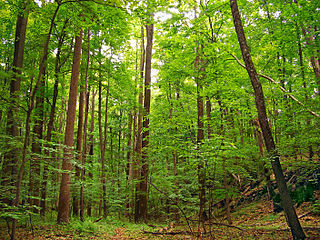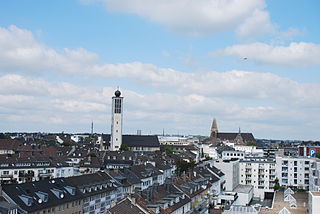
Solingen is a city in North Rhine-Westphalia, Germany. It is located on the northern edge of the region called Bergisches Land, south of the Ruhr area, and, with a 2009 population of 161,366, is after Wuppertal the second largest city in the Bergisches Land. It is a member of the regional authority of the Rhineland.
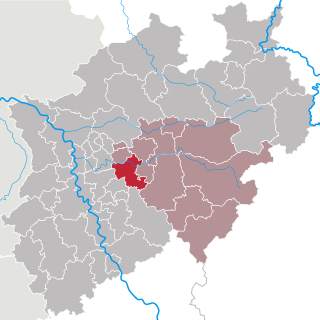
The Ennepe-Ruhr-Kreis is a district in the center of North Rhine-Westphalia, Germany. It is part of the southern Ruhr urban area and has ca. 324,000 inhabitants (2012). The district's seat is Schwelm; the largest of its nine towns is Witten.
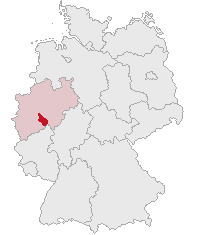
The Oberbergischer Kreis is a Kreis (district) in the state of North Rhine-Westphalia, Germany. Neighboring districts are Ennepe-Ruhr, Märkischer Kreis, Olpe, Altenkirchen, Rhein-Sieg, Rheinisch-Bergischer Kreis, and the urban districts Remscheid and Wuppertal.
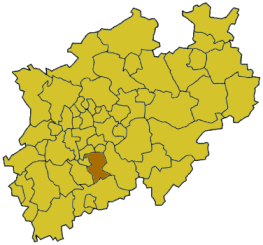
The Rheinisch-Bergische Kreis is a Kreis (district) in the Cologne Bonn Region of North Rhine-Westphalia, Germany. Neighboringdistricts are Oberbergischer Kreis and Rhein-Sieg, and the district-free cities Cologne, Leverkusen, Solingen and Remscheid.

Mettmann is a Kreis (district) in the middle of North Rhine-Westphalia, Germany. Neighboring are the Ennepe-Ruhr and the district-free cities Wuppertal, Solingen, Düsseldorf, Duisburg, Mülheim, Essen. It is the most densely populated rural district in Germany; it borders Düsseldorf Airport in the northwestern district borders, on the city limits of Ratingen, and is also near Cologne Bonn Airport. It was named after Mettmann, its district seat.

Elberfeld is a municipal subdivision of the German city of Wuppertal; it was an independent town until 1929.
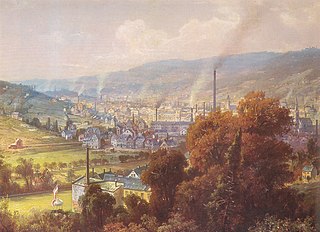
Barmen is a former industrial metropolis of the region of Bergisches Land, Germany, which merged with four other towns in 1929 to form the city of Wuppertal. Barmen was the birthplace of Friedrich Engels and together with the neighbouring town of Elberfeld founded the first electric suspended monorail tramway system, the Schwebebahn floating tram. Barmen was a pioneering centre for both the early industrial revolution on the European mainland, and for the socialist movement and its theory. It was the location of one of the first concentration camps in Nazi Germany, KZ Wuppertal-Barmen, later better known as Kemna concentration camp.

The University of Wuppertal is a German scientific institution, located in Wuppertal, in the state of North Rhine-Westphalia, Germany.
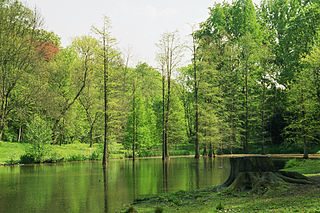
The Botanischer Garten Rombergpark, or informally Rombergpark, is an extensive municipal arboretum and botanical garden located at Am Rombergpark 49b, Dortmund, North Rhine-Westphalia, Germany. With its total area of 65 hectares the Rombergpark is one of the largest botanical gardens in the world. It is open daily.
The Forstbotanischer Garten und Pflanzengeographisches Arboretum der Universität Göttingen, often called the Forstbotanischer Garten und Arboretum, is a 40 hectares arboretum and botanical garden maintained by the University of Göttingen. It is located at Büsgenweg 2, Göttingen, Lower Saxony, Germany, immediately adjacent to the New Botanical Garden, and open to the public daily.

The WeltWald Harz up to 2009 Arboretum Bad Grund, also known as Exotenwald and sometimes called the Arboretum des Forstamtes Grund or the Forstaboretum der Niedersächsischen Landesforstverwaltung, is an arboretum located along the B 242 federal highway near the Hübichenstein, northwest of Bad Grund, Lower Saxony, Germany. It is open daily without charge.
The Forstbotanischer Garten in Hannoversch Münden is a forest botanical garden and arboretum located at Mitscherlichstraße 5, Hannoversch Münden, Lower Saxony, Germany.
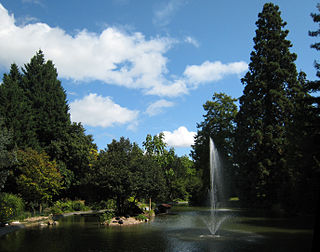
The Staatliche Baderverwaltung Badenweiler is a historic arboretum located in the city Kurpark at Kaiserstrasse 5, Badenweiler, Baden-Württemberg, Germany. It is open daily without charge.
The Forstlicher Versuchsgarten Grafrath is an arboretum in Grafrath, Bavaria, Germany.

The Arboretum Freiburg-Günterstal is an arboretum maintained by the University of Freiburg. It is located in Günterstal in the Städtischen Forstamt Freiburg at Günterstalstraße 71, Freiburg, Baden-Württemberg, Germany, and open daily without charge.

The Akademischer Forstgarten Gießen is a historic arboretum and botanical garden located in the Schiffenberger Wald on Schiffenberger Weg, Gießen, Hesse, Germany. It opens daily without charging any entry fee.
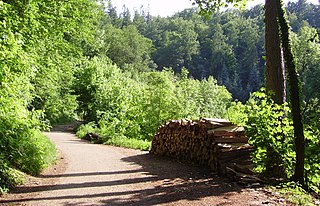
The Exotenwald Weinheim is a forest arboretum located beside the Schlosspark in Weinheim, Baden-Württemberg, Germany. It is open daily without charge.

The Kaldenkirchen Sequoia Farm is a German arboretum that has been used as a biological institute for many years. Part of the protected area in the city of Nettetal, it is situated in the "Kaldenkirchen Grenzwald". Nettetal lies in the Lower Rhine region of Germany.
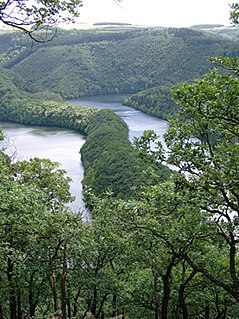
The Eifel National Park is the 14th national park in Germany and the first in North Rhine-Westphalia.





